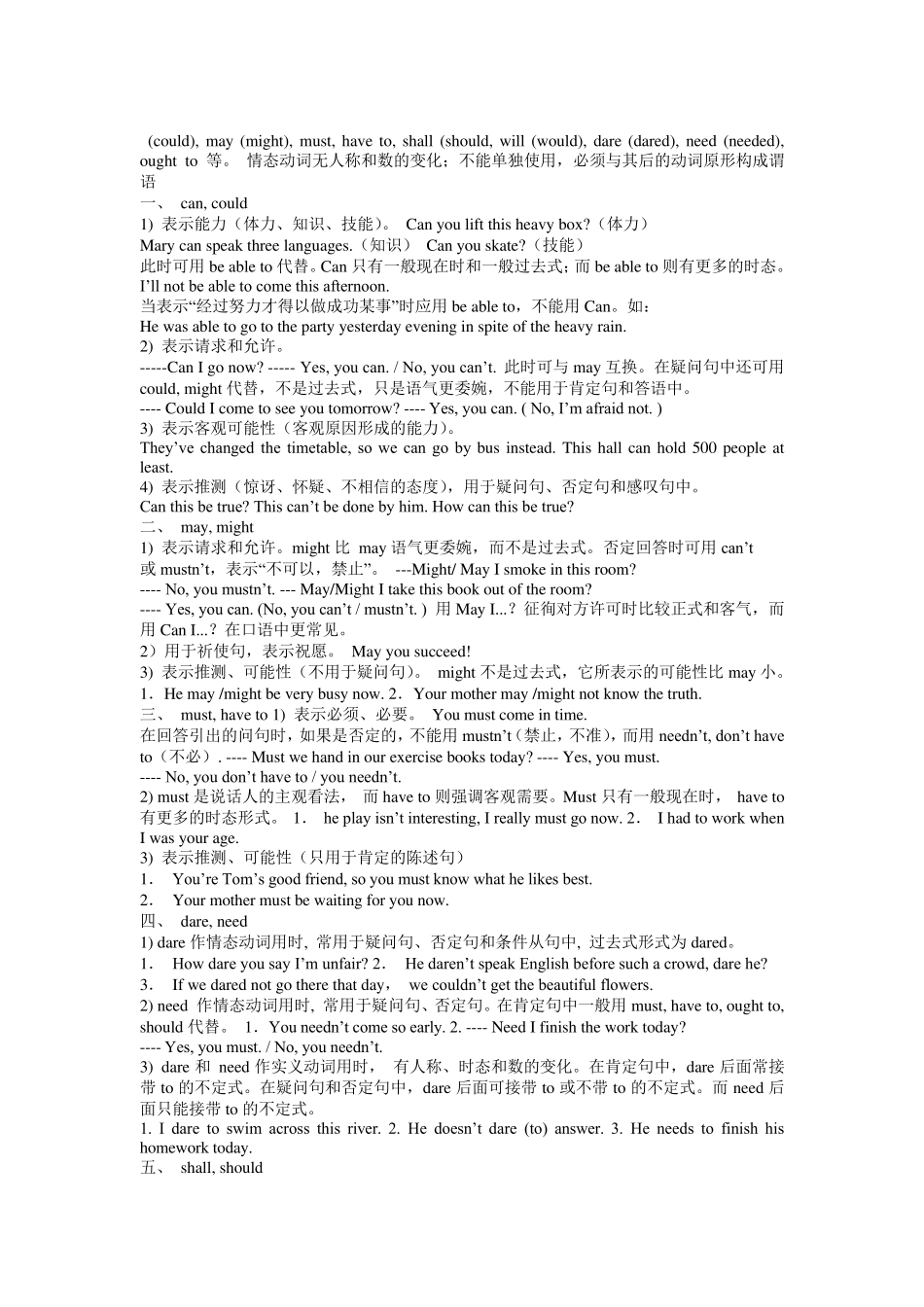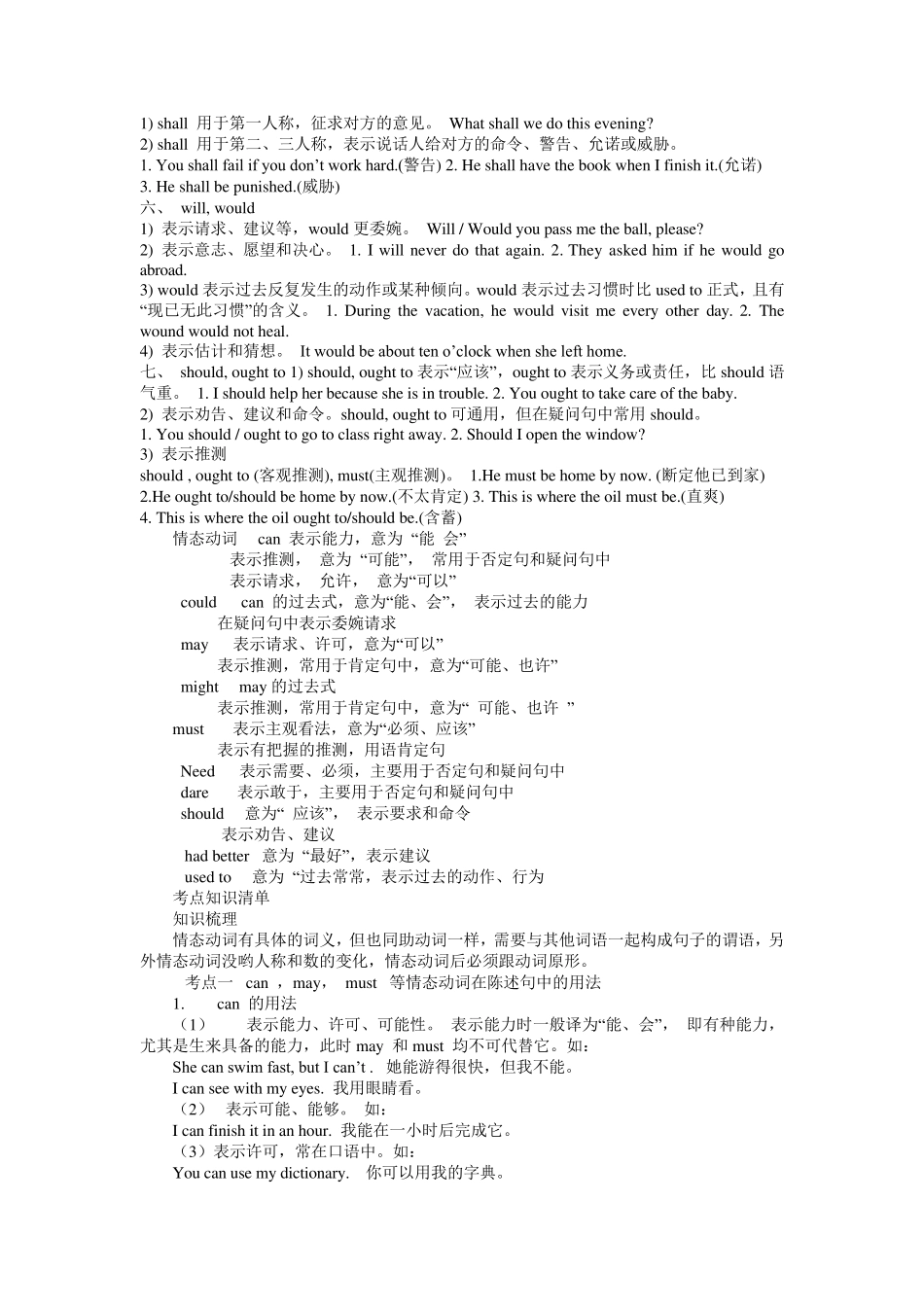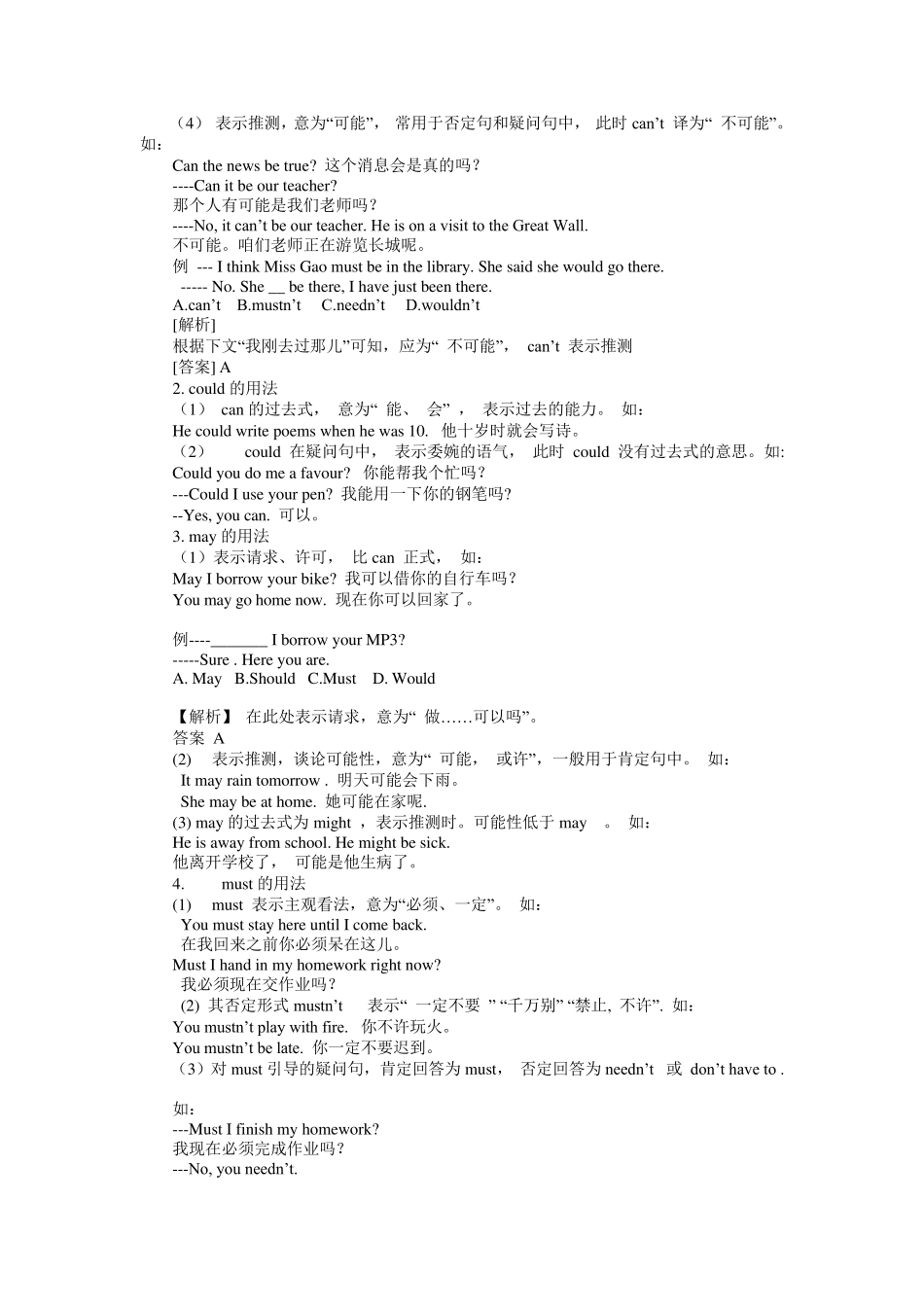(could), may (might), must, have to, shall (should, will (would), dare (dared), need (needed), ought to 等。 情态动词无人称和数的变化;不能单独使用,必须与其后的动词原形构成谓语 一、 can, could 1) 表示能力(体力、知识、技能)。 Can you lift this heavy box?(体力) Mary can speak three languages.(知识) Can you skate?(技能) 此时可用be able to 代替。Can 只有一般现在时和一般过去式;而 be able to 则有更多的时态。 I’ll not be able to come this afternoon. 当表示“经过努力才得以做成功某事”时应用be able to,不能用Can。如: He was able to go to the party yesterday evening in spite of the heavy rain. 2) 表示请求和允许。 -----Can I go now? ----- Yes, you can. / No, you can’t. 此时可与may互换。在疑问句中还可用could, might 代替,不是过去式,只是语气更委婉,不能用于肯定句和答语中。 ---- Could I come to see you tomorrow? ---- Yes, you can. ( No, I’m afraid not. ) 3) 表示客观可能性(客观原因形成的能力)。 They’ve changed the timetable, so we can go by bus instead. This hall can hold 500 people at least. 4) 表示推测(惊讶、怀疑、不相信的态度),用于疑问句、否定句和感叹句中。 Can this be true? This can’t be done by him. How can this be true? 二、 may, might 1) 表示请求和允许。might 比 may语气更委婉,而不是过去式。否定回答时可用can’t 或 mustn’t,表示“不可以,禁止”。 ---Might/ May I smoke in this room? ---- No, you mustn’t. --- May/Might I take this book out of the room? ---- Yes, you can. (No, you can’t / mustn’t. ) 用May I...?征徇对方许可时比较正式和客气,而用Can I...?在口语中更常见。 2)用于祈使句,表示祝愿。 May you succeed! 3) 表示推测、可能性(不用于疑问句)。 might 不是过去式,它所表示的可能性比 may小。 1.He may /might be very busy now. 2.Your mother may /might not know the truth. 三、 must, have to 1) 表示必须、必要。 You must come in t...


